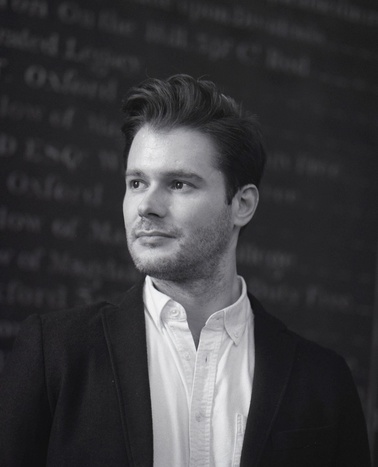
Ted Lechterman
I grew up in New York but have lived in several places throughout the US and Europe. Studying at Harvard and Princeton gave me formal training in politics, philosophy and French, but also allowed me to explore interests in history, literature, social science and the natural sciences. Outside of work, I’m passionate about surfing, as well as jazz, funk, and deep house music. Now an advisor to leading organizations on understanding and navigating ethical trade-offs and controversies, I draw on my professional experience to inspire my students to think about the big questions in life.
"IE University students can expect to combine critical thinking and open-mindedness with methodological rigor."
Exploring the ethical frontiers of modern technology
Theodore “Ted” Lechterman is used to thinking about the big stuff—and encouraging others to do the same. Describing himself as “working at the frontiers of AI ethics, business ethics, and the ethics of philanthropy,” he believes that training in the humanities enables us to tackle life’s biggest questions with skill and humility.
The humanities, one of our key guiding principles here at IE University, are a vital field of study for understanding the issues that face our world today. Our students are encouraged to combine critical thinking with open-mindedness and methodological rigor over the course of their studies.
We are living in a time of great conflict and uncertainty, and at such times the humanities offer a different way of examining the human experience and its meaning, purpose and representation. According to Ted, education increasingly emphasizes technical and professional skills at the expense of critical thinking and the lessons that the past can teach us. That’s why the new Bachelor in Humanities program is so timely, he says—it seeks to equip students with the right balance of technical skills and intellectual perspectives that they’ll need to be leaders in the challenging times ahead.

On the practical side, the Bachelor in Humanities will open a number of potential career pathways for graduates. This degree provides ideal training for careers in organizational and political leadership, journalism, publishing, the creative arts, arts and culture management, ethics consulting, and graduate study in a humanities or professional field.
Ted’s vision of the humanities is rather grander, however, and aligns with why they’re so important at IE University. He concludes by citing distinguished American philosopher and professor Martha Nussbaum’s comment on the true value of an education in the humanities:
“Courses in the humanities, in particular, often seem impractical. But they are vital because they stretch your imagination and challenge your mind to become bigger, more responsive, and more critical.”
At IE University, we couldn’t agree more.

WANT TO KNOW MORE ABOUT THE BACHELOR IN HUMANITIES?
WANT TO KNOW MORE ABOUT THE BACHELOR IN HUMANITIES?